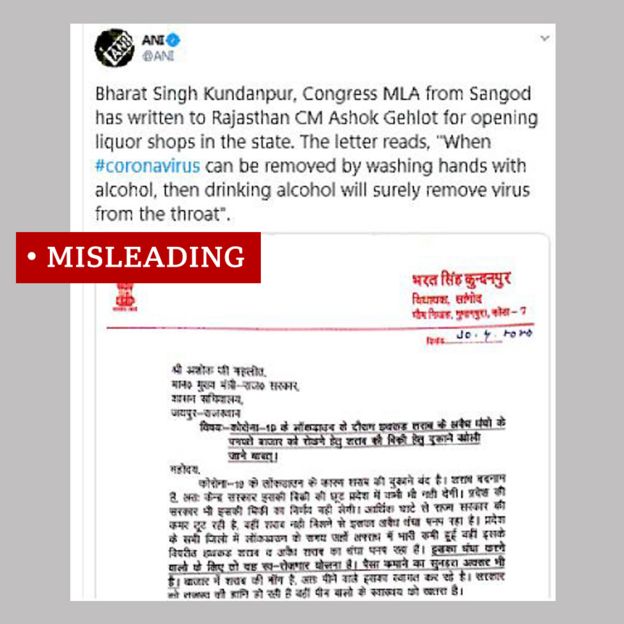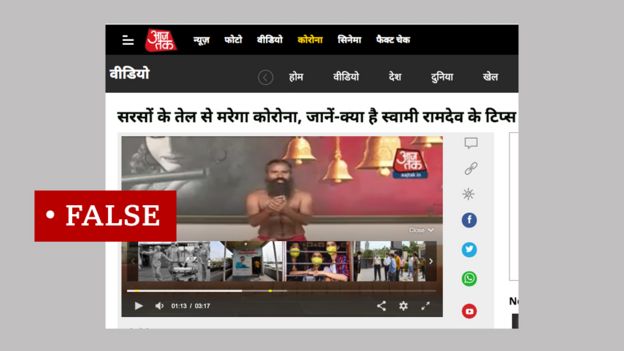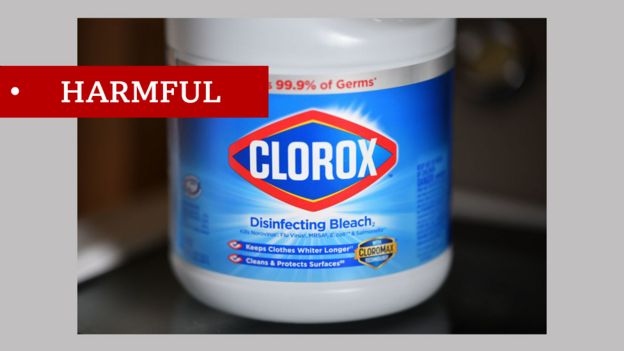As countries around the world grapple with the coronavirus epidemic, there’s been widespread sharing of health advice, ranging from the useless but relatively harmless to things that could be dangerous.
We’ve been looking at some examples and what the science says about them.
Drinking alcohol won’t stop the virus
This claim has come up regularly, but it’s misleading and possibly harmful.
A politician in India recently demanded the immediate opening of shops selling alcohol, which had been closed during the country’s lockdown.
“When coronavirus can be removed by washing hands with alcohol, then drinking alcohol will surely remove the virus from the throat,” said Bharat Singh, a senior member of the Congress Party in Rajasthan state.

But there is no medical evidence to support this idea.
The World Health Organization (WHO) has made clear that drinking alcohol is not a way to stop the virus and could increase the risk of other health problems.
The only time the WHO and other official health bodies refer to alcohol is when it’s used to make up hand-cleaning gels.
Regular hand washing is recommended as a way to stop the virus spreading.
Holding your breath can’t tell you if you have the virus
The claim about holding your breath has surfaced in many countries.
A popular yoga guru in India, Baba Ramdev, has said you should try holding your breath for a full minute if you’re young and healthy – 30 seconds for the elderly or those with underlying conditions.
If you can’t, he says, it indicates you have the virus.
But there is no scientific basis for this claim.

Mustard oil isn’t an effective treatment
The same Indian guru also suggests putting drops of mustard oil into the nostrils while doing the breathing test, claiming – again erroneously – the oil forces the virus out of the respiratory tract down into the stomach, where it is killed by acid.
The guru, one of India’s most widely followed, has a vast business empire that sells a wide range of products.
The Indian government’s own fact-checking service has debunked the claim about mustard oil.
Disinfectant and UV light claims have been widely shared
Since US President Donald Trump raised the idea, in a press briefing last month, injecting patients with disinfectant might help treat coronavirus, it has been repeated – and often derided – in various forms on social media in many countries.

Using a disinfectant can kill viruses on surfaces.
But consuming or injecting disinfectant risks poisoning and death.
And there is no evidence it has any effect against the virus.
Mr Trump also talked of exposing patients to UV (ultraviolet) light.
And there is some evidence that viruses do not last as long on surfaces when exposed to direct sunlight.
But UV light can be very damaging to human tissue.
And there is no evidence that this form of light is an effective treatment for anyone with the coronavirus.
Credit: Source link